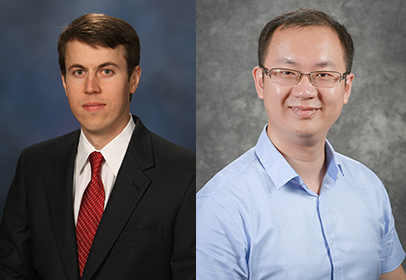 The Defense Sciences Office at the Defense Advanced Research Projects Agency (DARPA) has awarded Dr. James Caverlee and Dr. Xia “Ben” Hu a Next Generation Social Science (NGS2) grant to complete their collaborative research project, HELIOS, named after the Greek god with the ability to see the invisible.
The Defense Sciences Office at the Defense Advanced Research Projects Agency (DARPA) has awarded Dr. James Caverlee and Dr. Xia “Ben” Hu a Next Generation Social Science (NGS2) grant to complete their collaborative research project, HELIOS, named after the Greek god with the ability to see the invisible.
Along with being a part of the Center for Digital Libraries, Caverlee is an associate professor and Hu is an assistant professor in the Department of Computer Science and Engineering at Texas A&M University.
The HELIOS project aims to create new computational methods and algorithms to fill in the gaps of rapidly evolving spatial-temporal datasets, which are datasets that measure both space and time. These types of datasets are generally missing information, which prohibit accurate assessments of time and location.
This research will lead to data multipliers, which will mean that observed data can be used to extend the coverage and reliability of these partial observations. This will lead to more accurate estimations for collective identity applications that rely on spatial-temporal datasets, such as GPS signals.
The ultimate goal of the HELIOS project is to carefully model the hidden relationships among locations, times and observations of human activities. These relationships can then be embedded into a tensor based computational framework for uncovering the approximate complete data based only on partial observations.
The NGS2 program is divided into two phases — a 24-month base period with one 18-month option period. Each phase will consist of two research cycles.